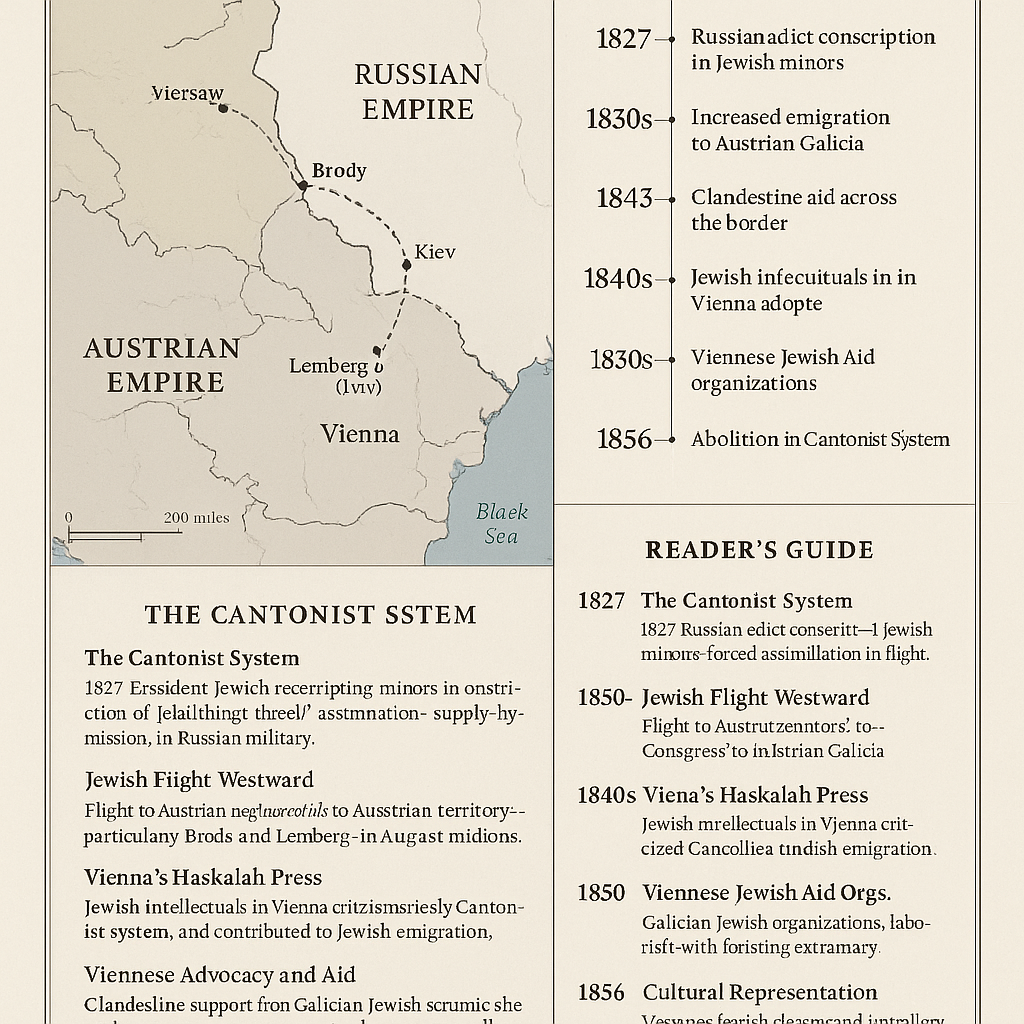Introduction
From 1827 to 1856, the Russian Empire implemented one of the most brutal policies in Jewish history: the forced conscription of young boys—often as young as six—into military cantonments designed to strip them of their identity, faith, and childhood. Known as the Cantonist system, this edict aimed to convert Jewish children to Orthodox Christianity under the guise of military service.
But while these children were taken from shtetls across Ukraine, Belarus, and Lithuania, Vienna emerged as an unexpected center of rescue, response, and remembrance. This is the untold story of how one city became a safe harbor—and a conscience—for an entire people.
Who Were the Cantonist Children?
Imposed by Tsar Nicholas I in 1827, the Cantonist system required Jewish communities to supply male children for military service. These children were placed in isolation, subjected to abuse, and coerced into converting to Christianity. Communities torn between survival and betrayal sometimes hired khappers—child kidnappers—to meet quotas. The result was a collective moral trauma still remembered in Jewish folklore and literature.
Flight Across the Border: Galicia as Lifeline
As the Cantonist threat escalated, Jewish families fled westward. Their escape routes led to Austrian Galicia, particularly through Brody, Tarnopol, and Lemberg (Lviv). From there, some refugees journeyed on to Vienna, capital of the Habsburg Empire, where Jewish children found sanctuary and support.
Vienna’s Jewish Response
While Imperial Russia pursued forced assimilation, Vienna’s Jewish Enlightenment (Haskalah) flourished. Scholars and rabbis such as Adolf Jellinek and Isaac Noah Mannheimer openly criticized the Russian policy. The Israelitische Kultusgemeinde Wien coordinated rescue operations, housing for refugees, and political advocacy.
Vienna’s Jewish community raised funds, published survivor testimonies, and staged plays like Der Kantonist to keep the memory alive.
Cultural and Political Legacy
By the time the Cantonist system was abolished in 1856, thousands of children had vanished into the Russian military machine—but Vienna had helped save many more. The experience catalyzed new forms of Jewish advocacy, philanthropy, and ultimately, identity. It laid the foundations for the transnational activism that would define Jewish political life into the 20th century.
Why This Story Matters Today
Vienna’s role in the Cantonist era is a testament to the power of cross-border solidarity. It is a chapter of Jewish history that speaks to both the vulnerability of children and the resilience of community. At JewishInVienna.com, we tell these stories not only to remember—but to understand the forces that shaped modern Jewish consciousness.
